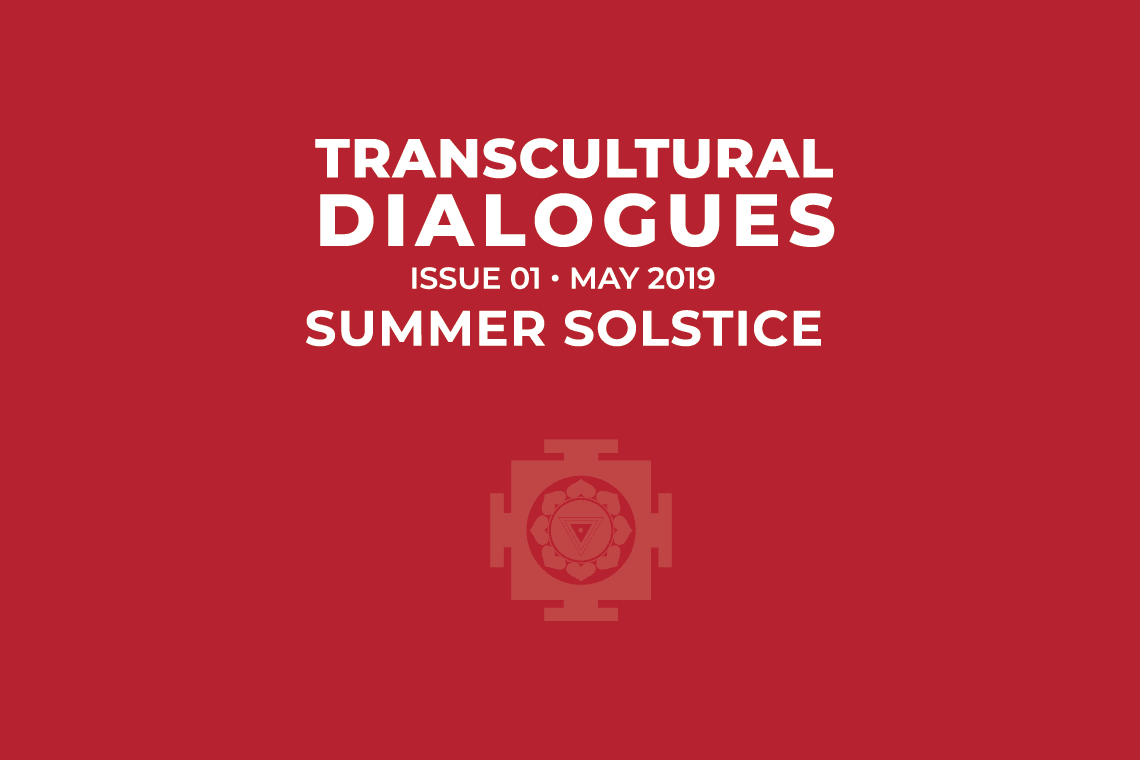
Jacques Cloarec
Alain Daniélou Foundation Honorary President
Letter to Readers and Friends of the Alain Daniélou Foundation
Dear Friends and Readers,
Four years ago, at the beginning of 2015, the Alain Daniélou Foundation decided to change the name of its online publication from Alain Daniélou Foundation Newsletter to Cahiers de la Fondation (the connecting thread remained “Indialogues”). This change, as Alain Daniélou Foundation’s Advisory Committee President Anne Prunet said in an explanatory letter included in the first issue of the Cahiers de la Fondation, was not a mere change of label, but indicated a considerable development in our activities. This development was reflected in the contents of the Cahiers de la Fondation and in the level of the texts available to readers in each of its issues.
In this case too, I am glad to announce another change of name. The cycle of the Cahiers de la Fondation has reached a symbolic completion (or shall we say “limit”?), and Alain Daniélou Foundation’s online publication will henceforth be called Transcultural Dialogues. What does this change of name mean? Alain Daniélou Foundation’s Newsletter was merely informative, combining short texts and announcements of events, whereas the Cahiers de la Fondation mirrored precise and open-minded intellectual work on many aspects of Indian and European culture. This clear difference was based on a common dialogical intention. In the present case, Transcultural Dialogues adds new elements and expresses a challenge: the heritage of Alain Daniélou, the main focus of which remains, of course, India and Europe, is not limited to the Indo-European field. Daniélou’s intuitions on animism, his thoughts on Dravidian and Munda ethnic groups, his emphasis on the value of a religion of Nature, and his use of both theoretical and experiential comparatism beyond textual parameters reaches out to cultures and forms of religious thought that are not limited to India and Europe.
The change from Cahiers de la Fondation to Transcultural Dialogues was already inscribed in last year’s intellectual production. The last issue of Cahiers de la Fondation, for example, presented a text on African Voodoo (not written – mind you – by a Western scholar but by a Voodoo priest with a remarkable background of his own local culture). Such a contribution also does justice to the heritage of Daniélou’s work. In the first place, the publication of the text on African Voodoo relates to Alain Daniélou Foundation’s “Transcultural Encounters” Forum, in which interdisciplinary research and discussion encompass not only different forms of Hindu and European classical tradition, but also Amerindian, African and Far-Eastern cultural, religious and philosophical clusters. Secondly, one only needs to read Daniélou’s writings, for example his essay for UNESCO written in 1978 on the Relationship between Dravidian and Negro- African cultures, or his contribution to the Latin-American review Takiwasi dated 1992 on the religious use of psychoactive substances. Last but not least, the name of Alain Daniélou is not only recorded in the register of Linga Rāja at Bhuwaneshwar and in Via Alain Daniélou at Zagarolo, Italy, but also in the Senegalese village of Sindia, West Africa!
The online review Transcultural Dialogues, as Alain Daniélou Foundation’s Director of Research and Intellectual Dialogue, Adrián Navigante, tells me, intends to broaden the horizon of cultural exchange with interdisciplinary contributions, since interdisciplinary research is now taking the place of encyclopaedic knowledge. Alain Daniélou Foundation’s idea of “dialogue” entails an attitude that is not so common in the West: a willingness to learn from “insider” knowledge, rather than imposing pre-ordained patterns of domination based on the exclusivity of Western knowledge. In this sense, Transcultural Dialogues in many ways expresses the same type of open-mindedness as Alain Daniélou Foundation’s Intellectual Forum “Transcultural Encounters”, where debates go beyond the India-Europe axis – with the aim of further feeding and deepening related research. In a way, this is a symbol of the type of work carried out on Alain Daniélou Foundation’s Research and Intellectual Dialogue platform, provingitself adequate to face the challenges of our times.
Wishing this project every success, I look forward to seeing the spirit of Alain Daniélou taking shape in new contexts and with new (trans-)cultural inputs.
Jaques Cloarec

